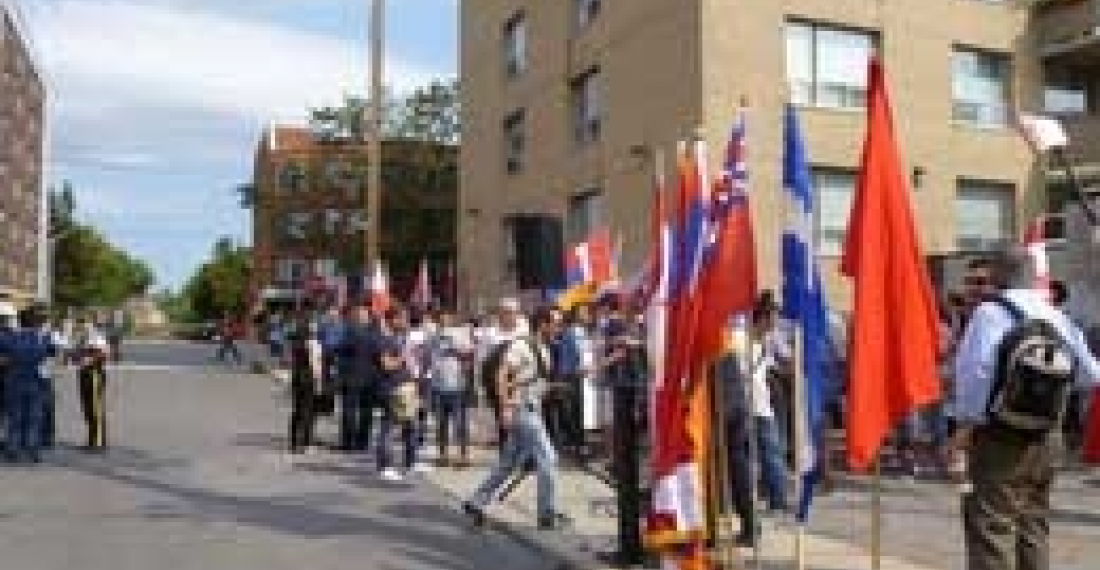The representatives of the Armenian community of Switzerland held a protest action in Bern near Hungary's Embassy in Switzerland against the extradition and pardoning of the Azerbaijani officer Ramil Safarov, who killed sleeping Armenian officer Gourgen Margaryan in 2004.
Nearly 100 representatives of the Armenian community and the Swiss society took part in the protest action. A number of officials made speeches in the protest action. The protesters criticized the decision of the Hungarian authorities and demanded that the Swiss authorities should express a clear position on Ramil Safarov's case.
To recall, on Aug 31 the Azeri officer sentenced by a Hungarian court to life in jail for killing sleeping Armenian officer Gourgen Margaryan with an axe in Budapest in 2004, was extradited to Azerbaijan. The same day Azeri President Ilham Aliyev decreed to pardon the criminal and advance him in the rank. Armenians worldwide are holding protest actions. The latest protest actions were held in Estonia and Turkey.
Armenian community of Switzerland holds a protest action in Switzerland
Armenian community of Switzerland holds a protest action in Switzerland







